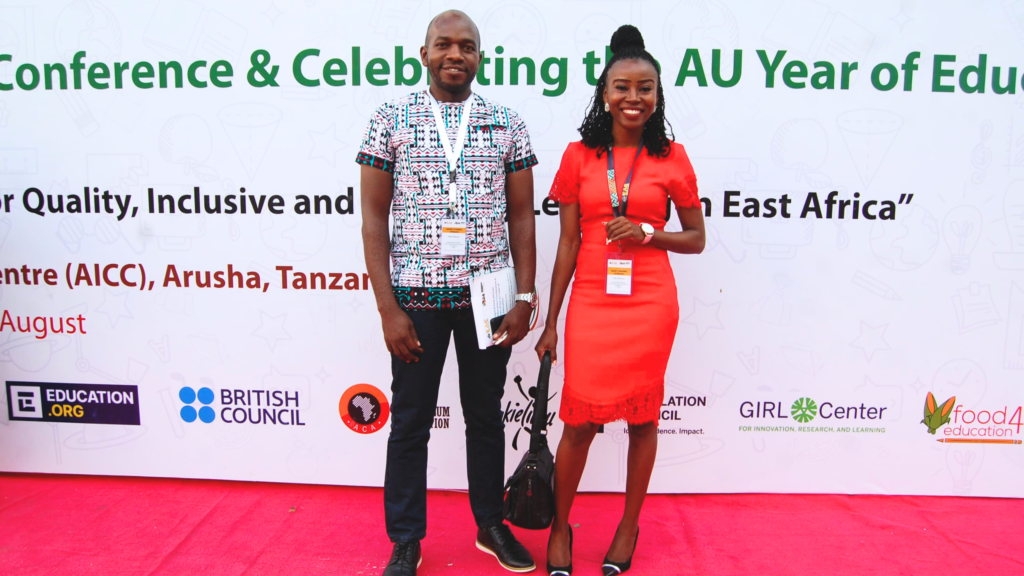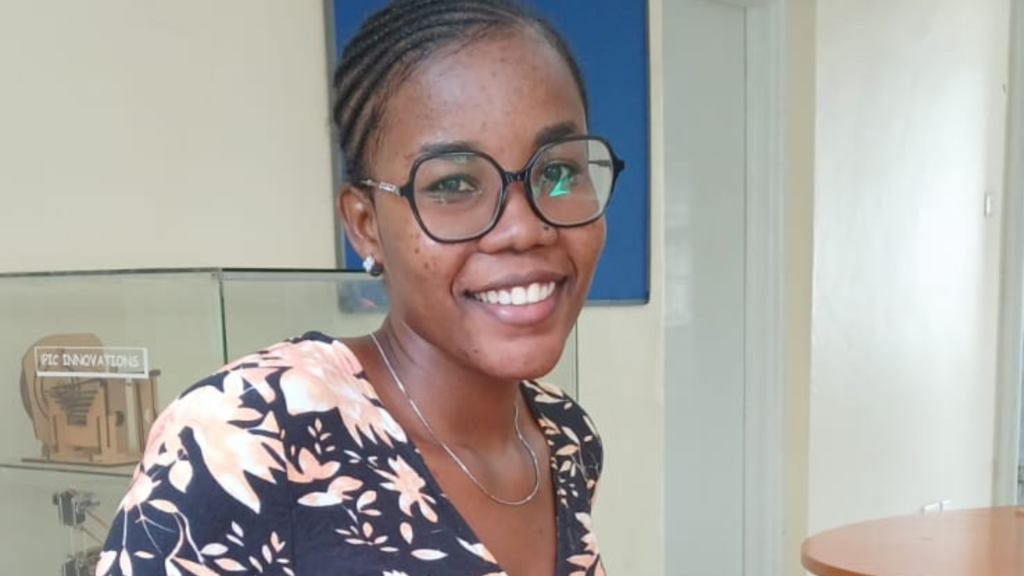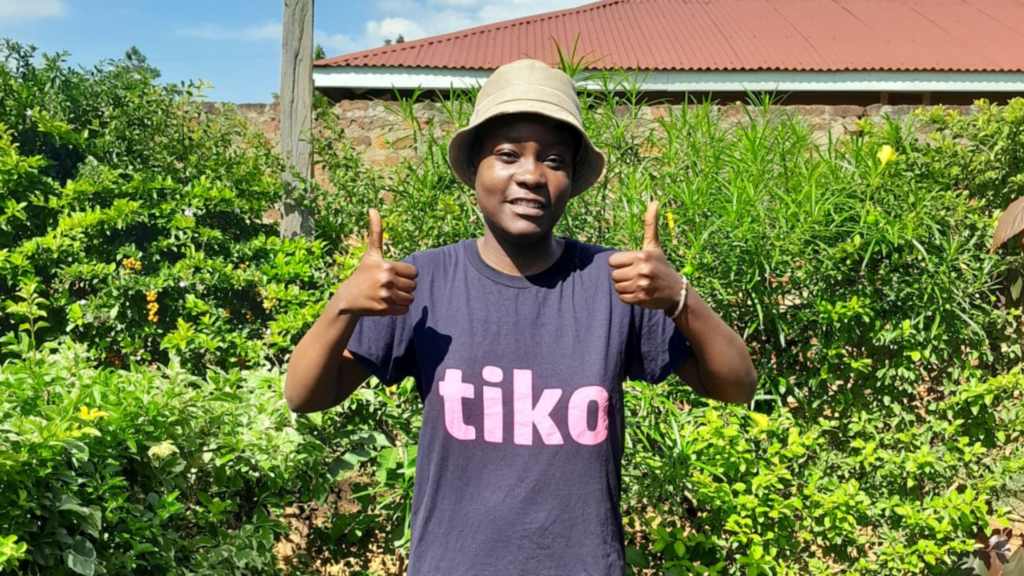
As part of our tertiary e-learning mentoring program, our students in university and college are encouraged to ideate and implement projects that help solve a current challenge in their local communities. Not one to shy away from big challenges, Sandra Akinyi decided to take on one of the biggest challenges facing school-going girls in her village. In this guest post, she explains how the combination of audacity, critical thinking, and a will to improve outcomes for young girls led her to achieve impressive results in her project.
—
My name is Sandra Akinyi, and I’m a second-year student majoring in Journalism and Mass Communication at Kibabe University. During my first year, I started a project that didn’t just change my perspective — it changed lives in Busia County.
At first, I thought drug abuse was the biggest problem teenagers faced — after all, it is what I’d seen growing up in Mombasa. Without thinking twice, I built my project around that assumption. But when I visited my grandmother’s village in Busia, I saw something that stuck with me: pregnant teenage girls in high school. It broke my heart. After talking to my grandma, the village elder (Liguru), and other locals, I realized I had been tackling the wrong issue — teenage pregnancy was the real problem.
So, I started over. I brainstormed ideas on how to tackle the problem — from mentorship, conducting school outreaches, and community engagement — but I knew I couldn’t do it alone. That’s when I found TIKO Africa. I didn’t apply or set up a meeting. Instead, I walked into their office, explained my vision, and hoped for the best. The secretary liked my passion and told me to return the next day to meet a senior officer. When I did, he listened, smiled, and said, “This is exactly the kind of passion we’re looking for. Why not start right away?”
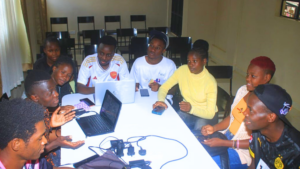
Sandra and team members at a strategic planning meeting
From there, everything changed.
I learned how to collaborate with people I’d never met before and how to speak up even when I was scared. I suggested ideas, and to my surprise, people listened. I also picked up practical skills like data collection and analysis, which helped us figure out how to make a bigger impact.
However, the biggest lesson I learned was resilience and the power of second chances. These girls were young, pregnant, and ashamed, but they deserved to feel hope again. I wanted them to know that one mistake doesn’t define them.
TIKO’s initial approach was to wait for teens to come to them for help — but most girls were too embarrassed to ask. I suggested we flip the script: instead of waiting for girls to come to us, we would go to them. We started door-to-door community outreaches, meeting the girls where they were. This new strategy proved successful, and we reached more teens than ever before.
I also proposed having group mentoring sessions instead of one-on-one talks. That way, the girls would feel less alone when they realize they weren’t the only ones going through this. We chose to meet on Thursdays so that the girls could come together, share their stories, and support each other.
The outcome
The results were more than I could have expected. Out of the ten groups my partner and I worked with, eight received full support from TIKO. They got bursaries to cover school fees, free daycare services so they could focus on their education without worrying about their babies, and TIKO cards (prepaid cards with money to help cover basic needs).
Twenty girls agreed to return to school — eight from primary and twelve from high school. For those who weren’t ready to go back, we set up weekly skill-training sessions, teaching them skills like tailoring so they could still build a better future.
Looking back, I realize that starting on the wrong path wasn’t a failure; it was part of the journey. Sometimes, mistakes lead us to where we’re meant to be. If there’s one thing I want those girls, and anyone else hearing my story, to remember, it’s this:
Your past doesn’t define you. One wrong turn doesn’t mean you’re lost forever. There’s always a second chance — you just have to believe you’re worth it.
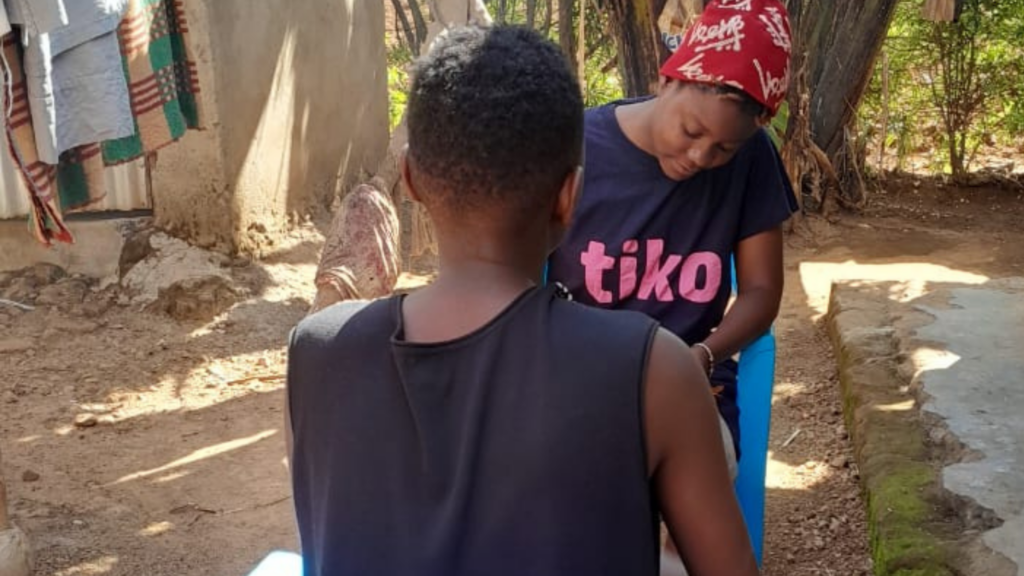
Sandra collecting data from one of the teens in TIKO’s program
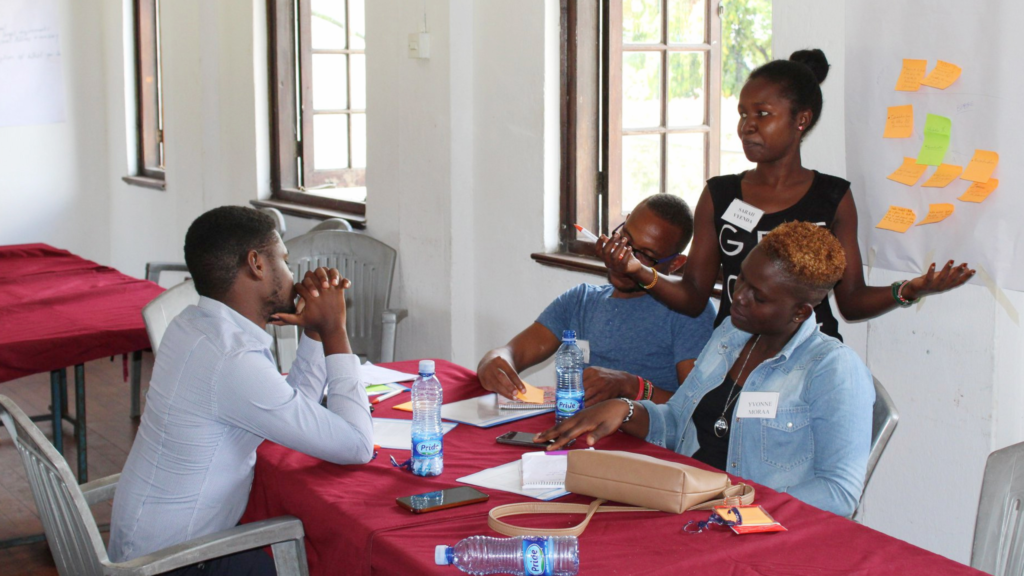
 Read More
Read More